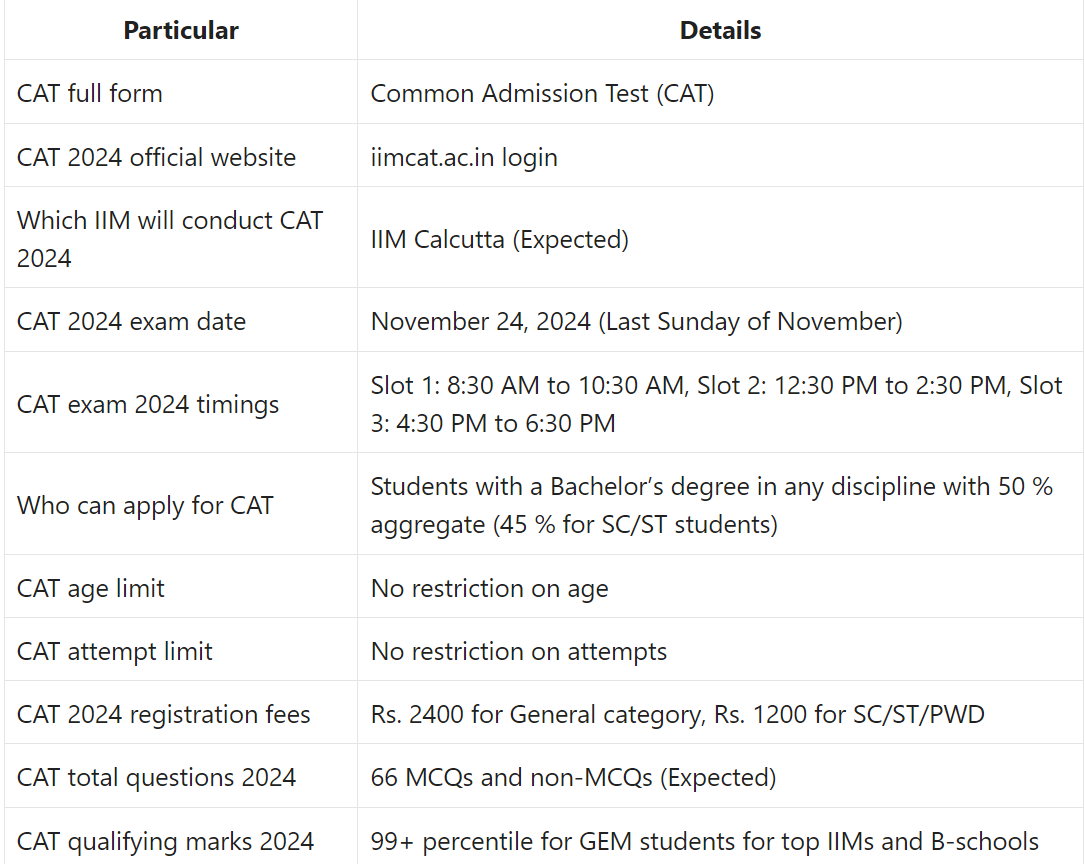Boost Your CAT Verbal Ability Score: Avoid These mistakes
The Common Admission Test (CAT) is one of the most challenging entrance exams for aspiring management students in India. Among its various sections, the Verbal Ability (VA) section often poses a significant challenge. Excelling in this section requires a strong command of English language skills and the ability to avoid common pitfalls. This blog highlights some of the most frequent errors students make in the VA section of the CAT exam and provides strategies to overcome them.
1. Misinterpretation of Questions
A common mistake is misinterpreting what the question asks, leading to incorrect answers. This often happens in Reading Comprehension (RC) passages and para jumbles.
How to Avoid:
Read Carefully: Take your time to understand the question thoroughly before attempting an answer.
Underline Key Points: In RC passages, underline or highlight key points and question stems to stay focused.
Practice Regularly: Regular practice with a variety of question types can improve your comprehension skills.
2. Overlooking Context in Vocabulary Questions
In vocabulary- based questions, students often rely on rote memorization rather than understanding the context in which words are used.
How to Avoid
Contextual Learning: Learn new words in context by reading extensively from diverse sources.
Use Flashcards: Create flashcards with example sentences to understand word usage better.
Practice Contextual Questions: Engage in exercises that focus on understanding words within sentences.
3. Errors in Para Jumbles
Para jumbles require arranging sentences in a coherent order. A common error is focusing solely on individual sentences without considering the overall flow of the passage.
How to Avoid:
Identify Key Sentences: Look for the sentence that introduces the topic or contains a clear opening.
Find Logical Connections: Identify link words and phrases that indicate the order of sentences.
Practice Sequencing: Regular practice with para jumbles will help you develop a sense of logical flow.
4. Misunderstanding Sentence Correction Questions
Sentence correction questions test your knowledge of grammar, syntax, and style. Misunderstanding these elements can lead to errors.
How to Avoid:
Brush Up on Grammar Rules: Regularly review and practice key grammar rules.
Understand Common Errors: Familiarize yourself with common grammatical errors tested in the CAT exam.
Analyze Choices: Carefully compare answer choices to identify subtle differences in grammar and usage.
5. Ignoring Passage Tone and Author's Intent
In RC passages, students often overlook the tone and intent of the author, leading to incorrect answers in inference and opinion-based questions.
How to Avoid:
Identify Tone Words: Pay attention to words and phrases that indicate the author's tone (e.g., critical, enthusiastic, neutral).
Understand the Main Idea: Focus on grasping the main idea and the author's intent behind the passage.
Practice Diverse Passages: Read a variety of texts to become comfortable with different writing styles and tones.
6. Inefficient Time Management
Time management is crucial in the CAT exam. Spending too much time on difficult questions can leave you with insufficient time to answer easier ones.
How to Avoid:
Set Time Limits: Practice under timed conditions to get a sense of how long you can afford to spend on each question.
Prioritize Questions: Start with questions you find easier and more confident about, then move on to more challenging ones.
Avoid Guessing: Make educated guesses only if you can eliminate at least two incorrect options.
7. Neglecting Practice with Mock Tests
Relying solely on theory and practice questions without taking full-length mock tests can leave you unprepared for the actual exam environment.
How to Avoid:
Take Regular Mock Tests: Simulate exam conditions by taking full-length mock tests regularly.
Analyze Performance: After each mock test, thoroughly analyze your performance to identify and work on weak areas.
Adjust Strategies: Use insights from mock tests to refine your time management and question-solving strategies.
Conclusion
The Verbal Ability section of the CAT exam requires a blend of strong language skills, strategic thinking, and efficient time management. By avoiding these common errors and implementing the suggested strategies, you can enhance your performance and boost your overall CAT score. Remember, consistent practice and a clear understanding of concepts are key to mastering this section. Good luck with your preparation!
For CAT Full Course Visit
http://learn.catcredentials.com/
Essay booklet :
https://www.prepcrazy.com/book?-CAT-Essay-Booklet
Don't let limited resources hold you back. Equip yourself with the ultimate study arsenal and watch your scores soar. Grab your prep pack now!
Remember, an MBA is a significant investment in your future. Choose a program that aligns with your career aspirations and financial situation. Good luck!



